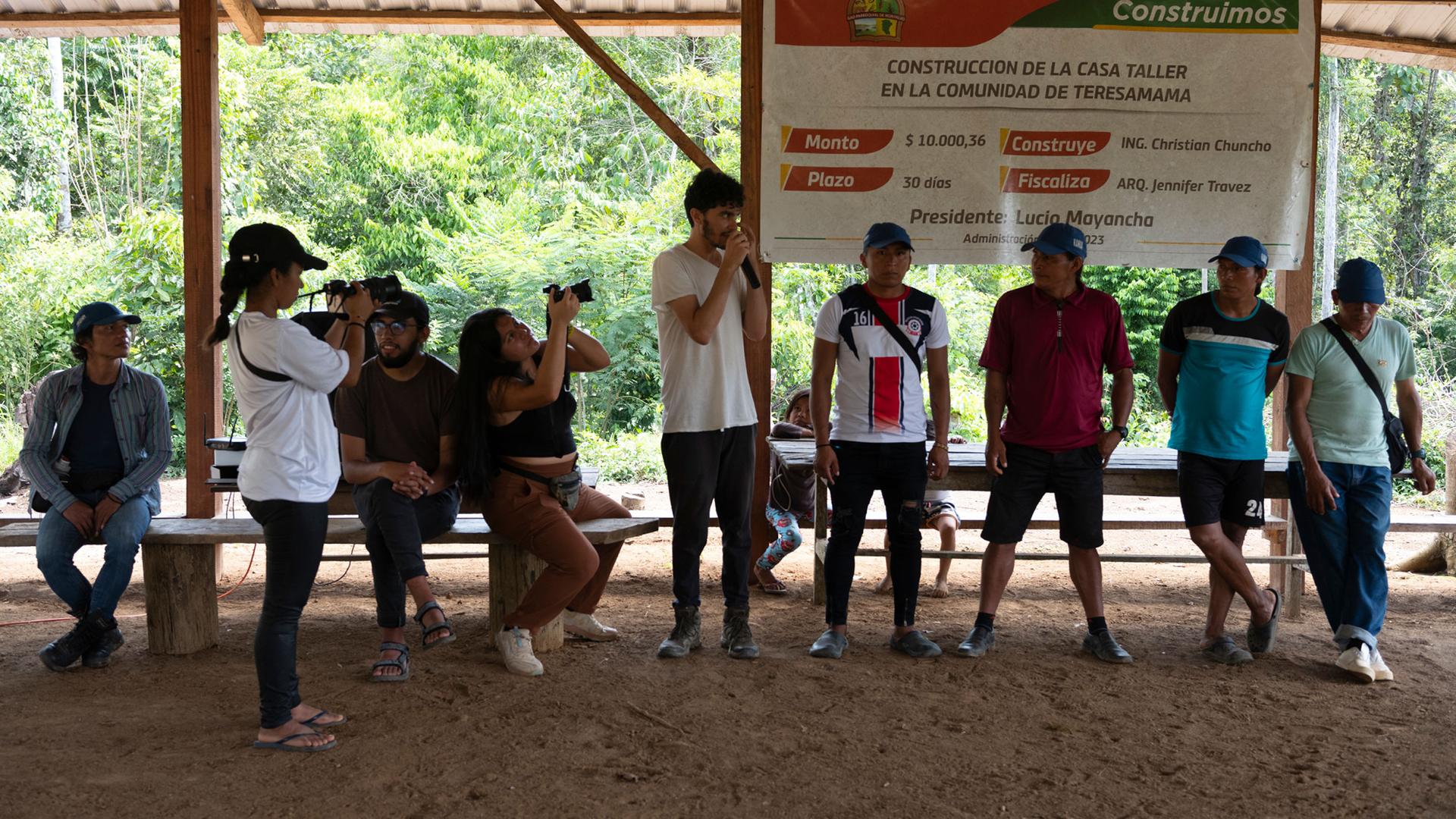Ecuador is hosting a one-of-a-kind floating film festival in the Amazon region. It’s making its rounds onboard a solar-powered river boat, stopping at different Indigenous communities along riverbanks.
The Kanua film festival team sets up a projector to screen films that are not only about, but also produced by Indigenous people.
The World’s host Marco Werman spoke with a member of the festival’s crew during their latest stop in the Achuar territory of the Ecuadorian Amazon region.
Elizabeth Swanson Andi, an Indigenous filmmaker and storyteller who grew up in Ecuador and the United States, is a member of the Venezia derecha community in the Ecuadorian Amazon.
She described her surroundings:
“It’s raining right now. I’m surrounded by this beautiful thatched roof with beautiful designs and weavings, and as I’m looking around at them, I’m just thinking about all the people, the community members who wove this together and the stories that are woven within this group. And I have a fire next to me. The community members are here with us right now, and we’re kind of having our last moments together before we head out. This is Day 15 and we’re all going to be heading out in probably about an hour.”
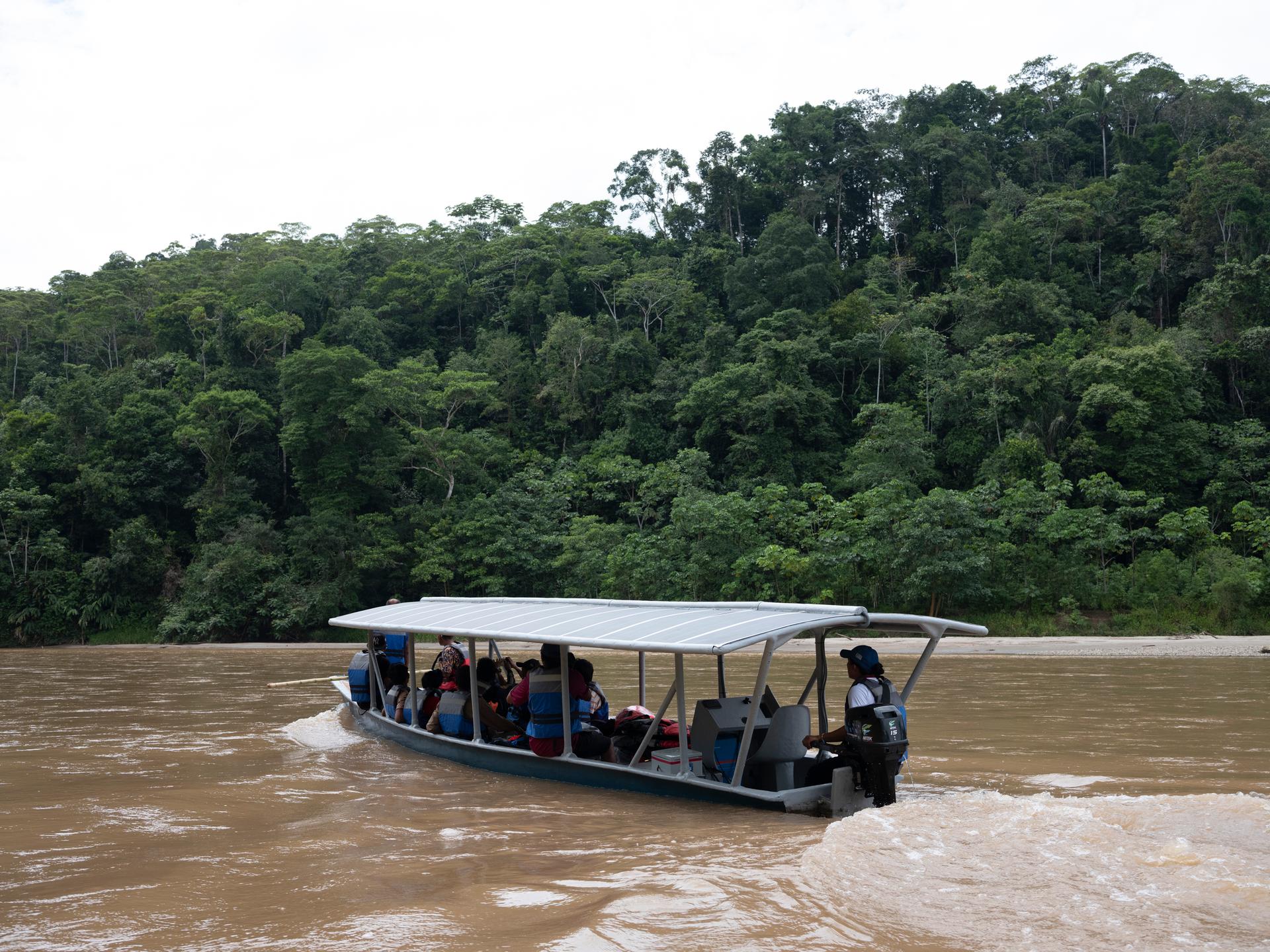
When asked what people’s reactions have been, she said that one of her favorite parts has been putting up the large movie screen.
“For many, this is the first time … they’ve seen … movies by Indigenous filmmakers.”
“For many, this is the first time they’ve seen such a big screen,” Andi explained. “And for many also the first time that they’ve seen movies and movies by Indigenous filmmakers.”
In one community, they screened the movies directly on the solar-powered canoe, but it was a challenging thing to do while floating. Most of the groups held the screenings at their community centers.
“Usually the community leader, right before the film, holds this clay horn and you blow through it. And that’s how they would call the community members to let them know that the film screening was about to start,” she said.
Many children would then run toward the center. A lot of women, especially grandmothers, would come with a traditional drink to share with everyone. Then they would watch something that was put together as a collaborative project.
“The reactions are usually laughter,” Andi said.
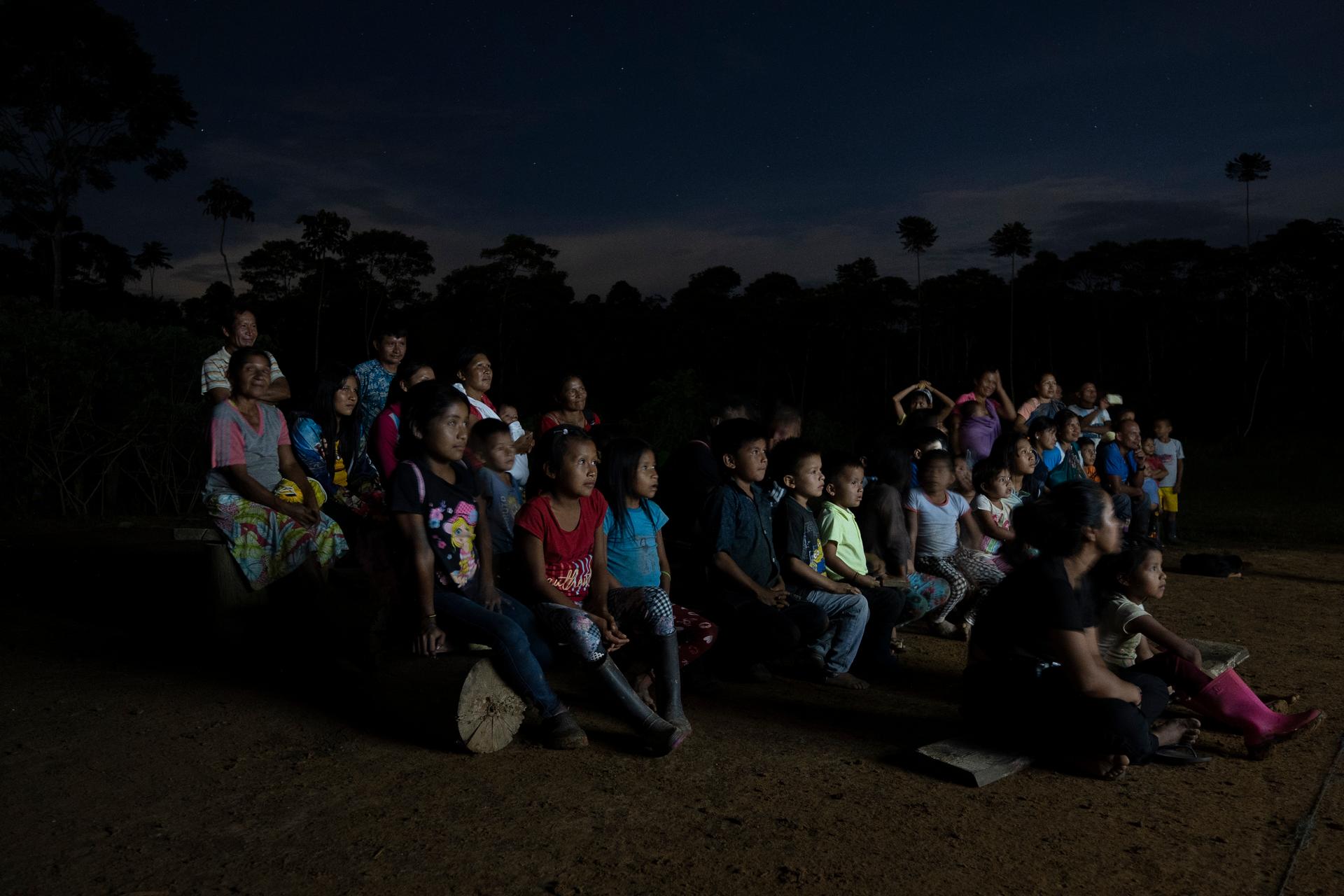
It’s about the Indigenous uprising in 1992. And a lot of the older generations, seeing people they knew on screen would say, “Oh yeah, I remember this. We were there.”
There’s also mention of those who have since passed away who also fought and did incredible work — lot of mothers and fathers who marched, many of them barefoot, from the Amazon rainforest through the Andes mountain range and all the way to the [Ecuadorian] capital of Quito to fight for their rights.
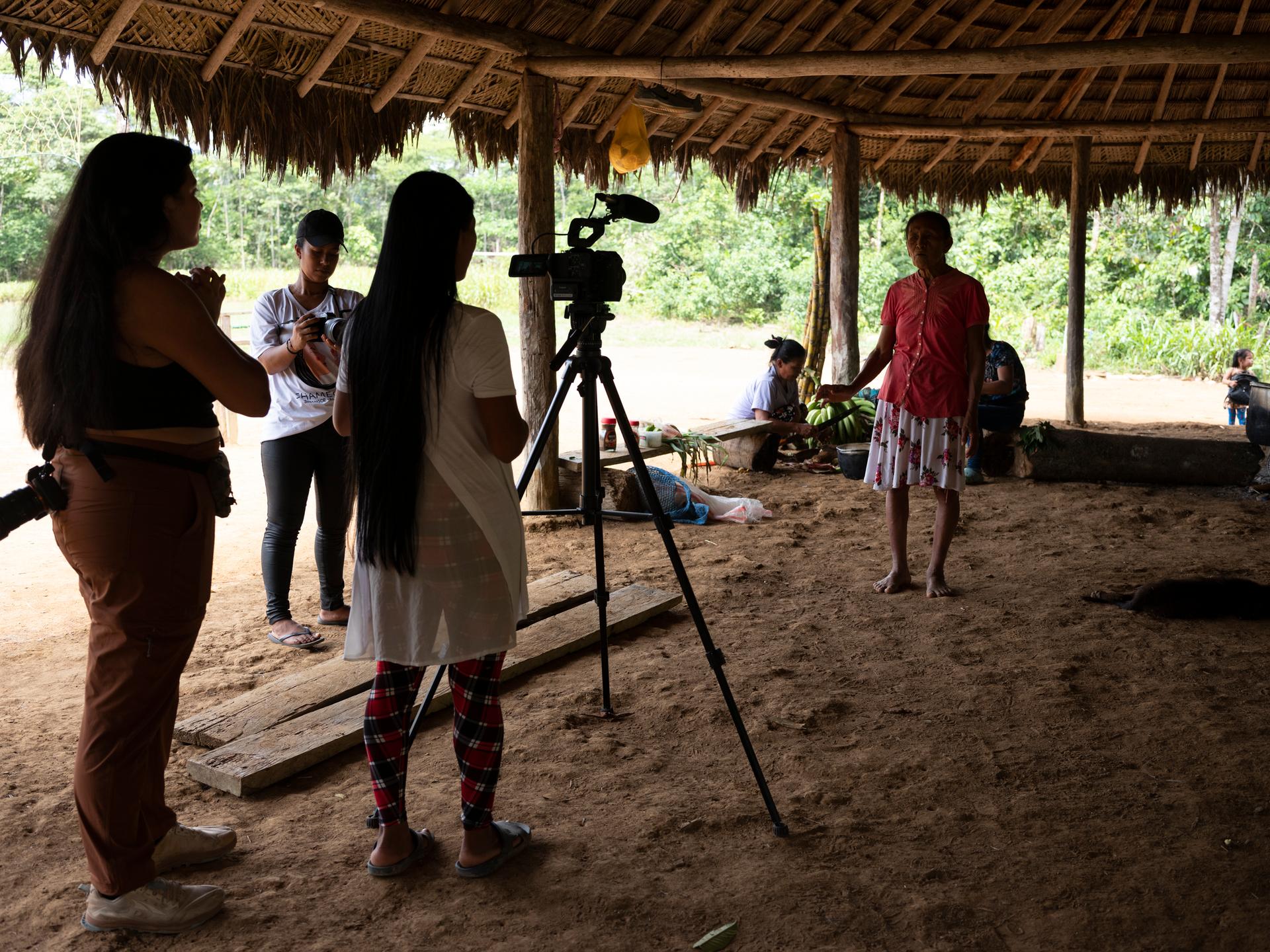
“It was beautiful to see the kids learn,” Andi added. “This was like an educational moment for them, as well.”
Andi said that the films also connect the people to the relationship with their own territories, the rivers, the forests, with community.
“It’s been really beautiful to have community members, after watching the films, stand up and share some of their reactions, and say thank you,” she said. “And a lot of the adults have stood up and addressed the youth saying, ‘You see, like other nationalities, other Indigenous filmmakers are making this in their own territories. You also can do this. You also can be a filmmaker if you choose.’”
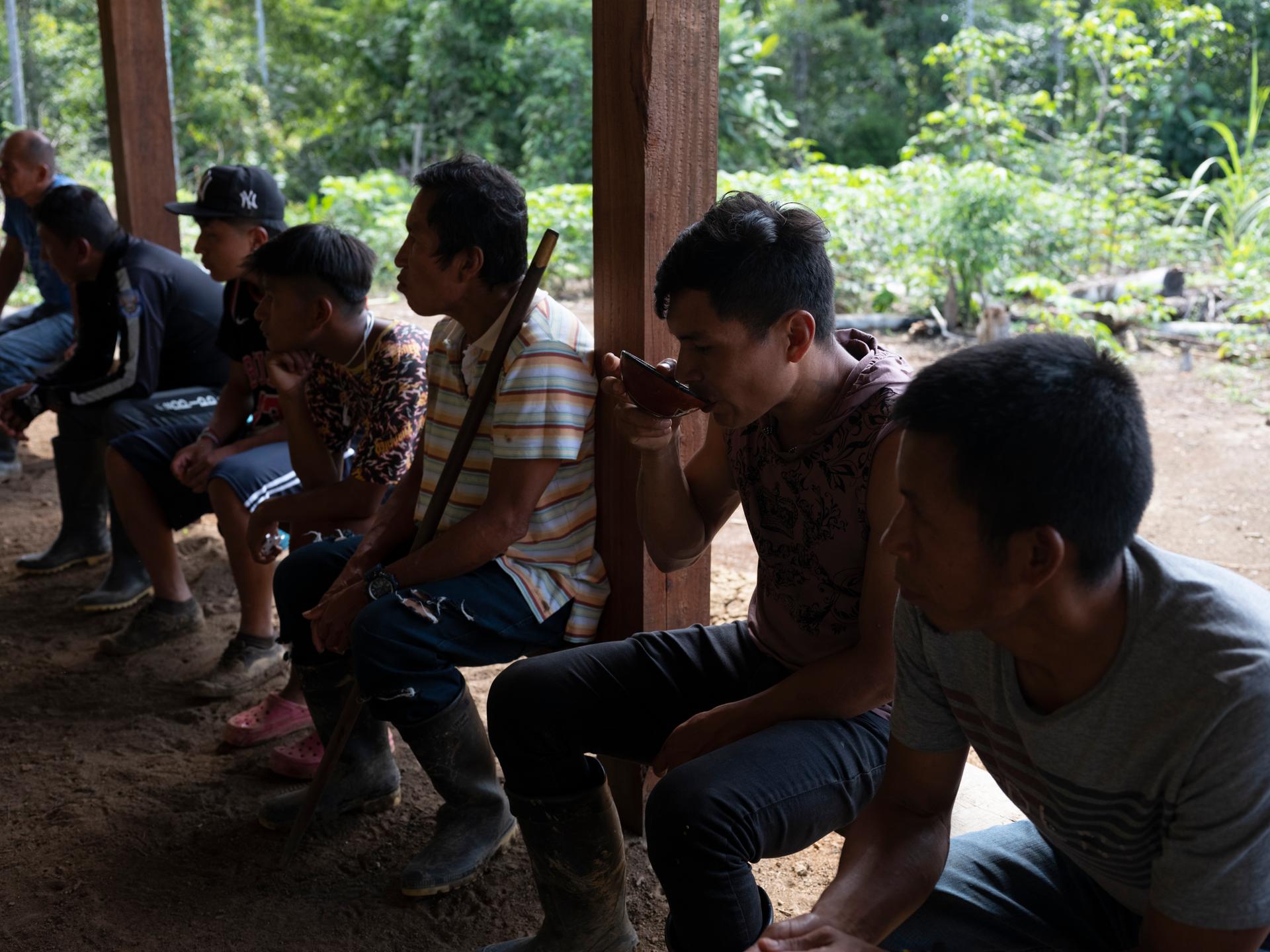
When asked about the fundamental idea behind the floating film festival featuring Indigenous stories by Indigenous filmmakers, Andi explained that, “a lot of people have come to our communities to tell our stories without really having us involved in the creation of the films.”
“And a lot of the time, they take our stories and don’t share it with us,” she said. “So, I think a big part of this film festival is building strength within each community and really showing that it’s possible that Indigenous peoples, we have so many stories to tell, and we can tell our stories. We can be behind the camera, we can be in front of the camera. We have so much to give and to share with each other, but also with the world.”
The World is an independent newsroom. We’re not funded by billionaires; instead, we rely on readers and listeners like you. As a listener, you’re a crucial part of our team and our global community. Your support is vital to running our nonprofit newsroom, and we can’t do this work without you. Will you support The World with a gift today? Donations made between now and Dec. 31 will be matched 1:1. Thanks for investing in our work!
